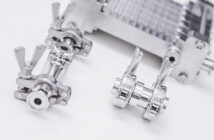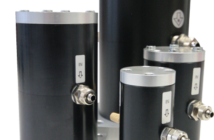
A team from the University of Quebec and the Indian Institute of Technology in Kanpur have built the sensor that can quickly and cost-effectively detect E.coli over a wide temperature range. It currently takes several hours to days to detect the presence of bacteria, and a fast alternative is desperately needed, the team says.
“Faster tests for the bacteria could lead to faster treatment of patients, as well as to cheaper and easier environmental monitoring,” Saurabh Mani Tripathi, a physicist at the Indian Institute of Technology, says. The new sensor uses bacteriophages — viruses that can naturally latch onto and kill bacteria.
The viruses are bonded to the surface of an optical fiber and will grab E.coli bacteria from a sample and keep them attached. When a beam of light strikes the surface, the presence of E.coli shifts the wavelength in a telltale sign of bacterial contamination.
Tripathi and his colleagues have overcome the temperature change challenge by adding an additional optical component, in effect cancelling out temperature-induced shifts. Their device is temperature insensitive over an approximately 20-degree Celsius range, starting at room temperature and going up to 40-degrees Celsius. This makes the sensor more practical for the food industry and pathology labs.
“Pathogenic bacterial infection is one of the biggest causes of death, and a fast response time is much needed for timely detection and subsequent cure of bacterial infection,” Tripathi says.
The research group is currently collaborating with Canadian company Security and Protection International to explore commercialisation of the device. Costs are hard to estimate at this stage of the research, but the team hopes to deliver portable units for a few thousand dollars.




























































































